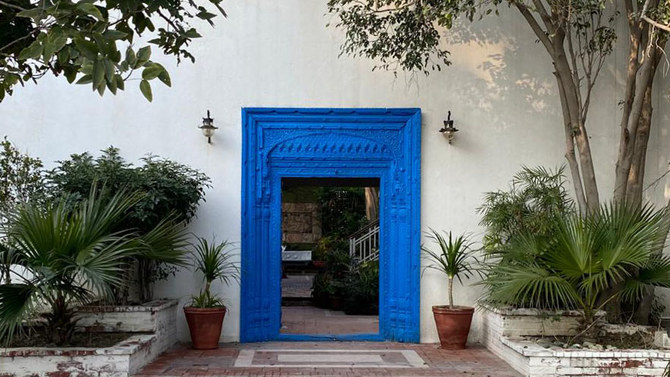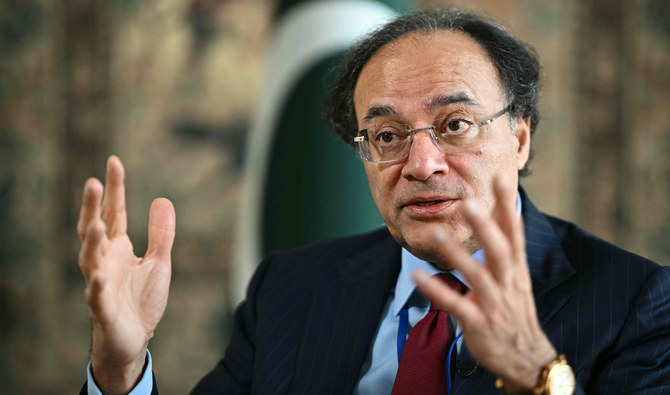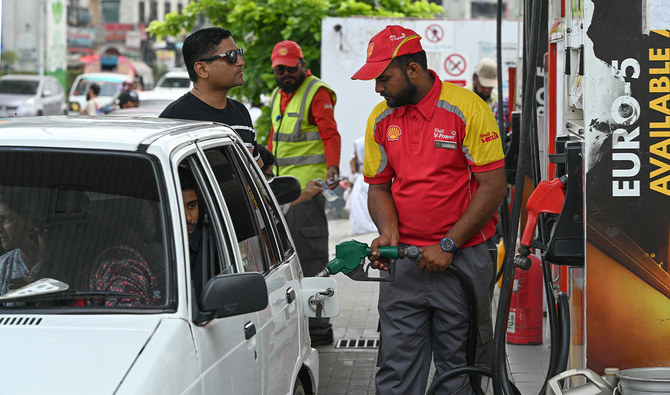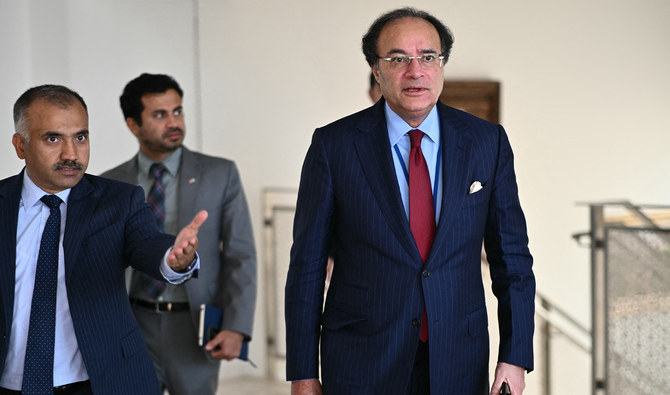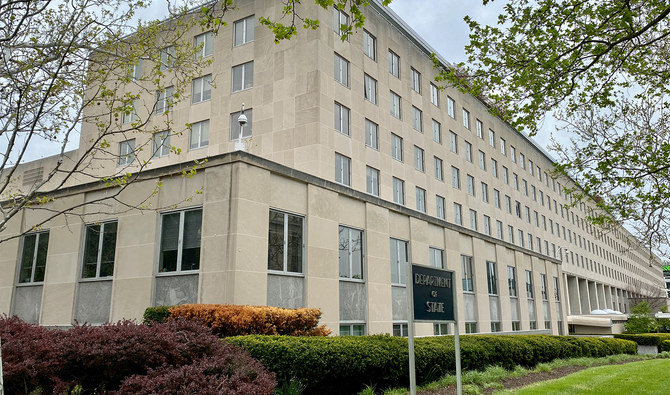LAHORE: Down a narrow drive at a farmhouse in Lahore’s Bedian area, a quiet walk through a slate driveway ends at a carved wooden door — the kind often preserved in the city’s old havelis. But unlike others, this one is painted a Santorini blue, and on the other side is twinkling candlelight, the clinking of glasses and conversations between strangers sharing a home-made gourmet meal.
This is the Blue Door Supper Club.
Lahori natives Unum Amin and Ali Mumtaz, both 33, moved back to Pakistan after living in London for over a decade. The married couple completed their PhD’s in biology and developed a foundation of friendship and love that they say, was partly built working side-by-side in the kitchen. Now, the two, who run a genetics testing company, host beautifully curated dining experiences on the weekends at their home.
On a cool spring eveing in Lahore, Amin and Mumtaz greet their entering guests-- inside, there’s a small kitchen, a chalkboard listing out the night’s menu, and a single table for 14.
Amin and Mumtaz not only cook every meal themselves, but also serve it and speak with their guests during each course. But perhaps its most stand out characteristic, is that those dining at the Blue Door Supper Club can only book in groups fewer than four people to ensure a diverse mix of people at the one and only table.

Diners are engaged in a conversation at the Blue Door Supper Club. (Photo courtesy: Blue Door Supper Club)
The club does anywhere from three to eight dinners a month, with spots booked up weeks, if not months, in advance.
Amin said opting out of smaller, individual tables was a deliberate attempt to put strangers on a table together to break bread and perhaps, to spark a connection.
“I have almost no friends in Lahore. As a social person who likes to speak my mind, it was really hard for me to adjust to being isolated in that way. So it was very selfish, really,” she laughed. “But the result has surpassed anything I could have expected.”
“We’ve had over 40 supper clubs over the past year and each one has been unique and special. It’s been such a lesson in being open-hearted and open-minded, people want to share their stories and connect with others.”
“Lahoris are used to just staying within their circle, so it’s quite refreshing to share a meal...with new people,” said Zohra Rahman, a Lahore-based jewellery designer.
“It’s like being invited to someone’s home and getting to know different people,” she said.
Living in the heart of urban Lahore with its booming restaurant culture, neither Mumtaz nor Amin had felt the need to cook seriously while growing up. But once abroad, they took to the kitchen and became a team — going from their very first, simple meal to cooking food that gradually gained in complexity.
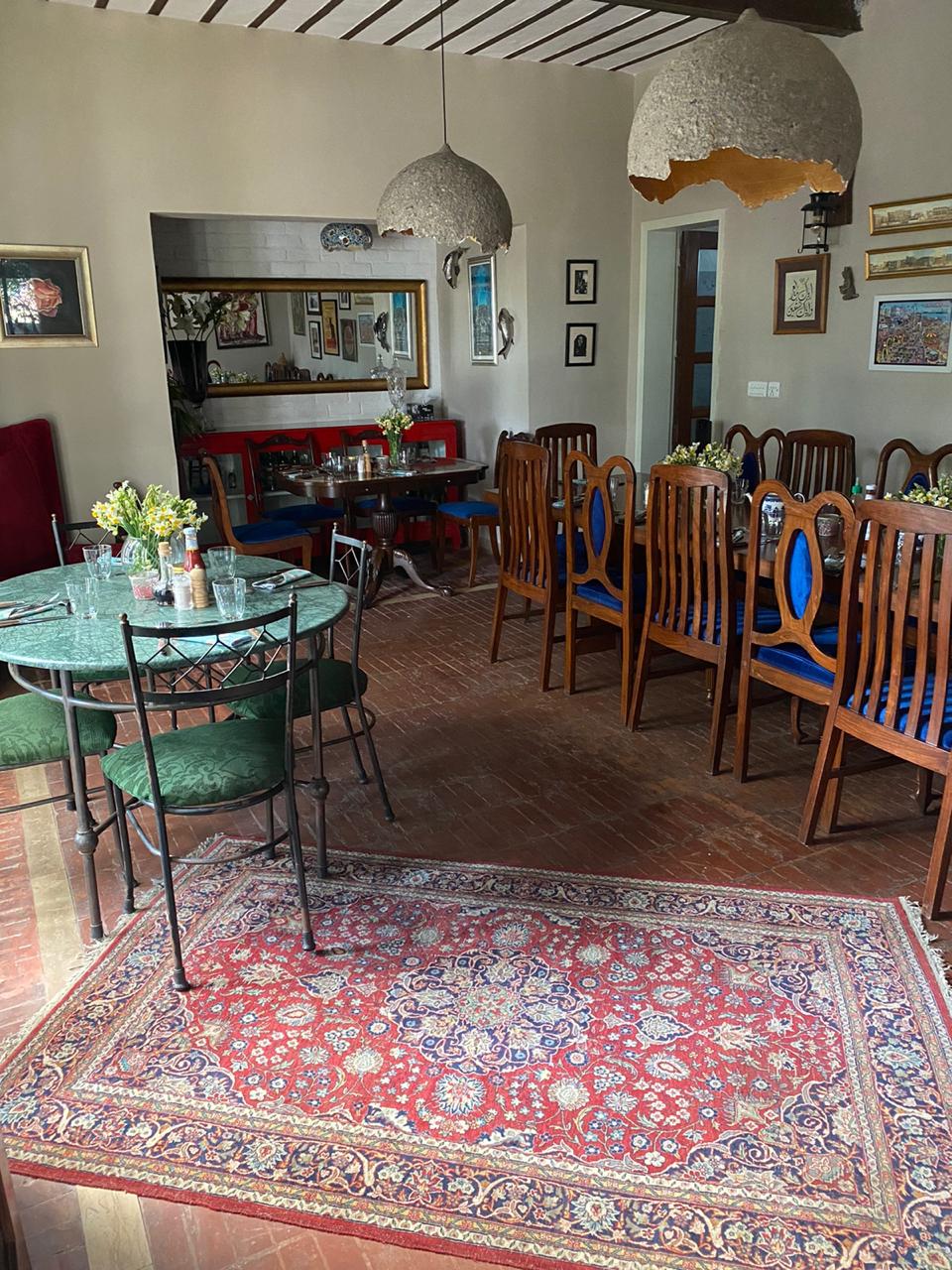
The supper club's long table gives diners the chance of meeting new people. (Photo courtesy: Blue Door Supper Club)
On the table, the conversations of their guests mixed up with loud laughter, and unbridled exclamations of joy as one course after the other was served.
From the fragrant batter-dipped fried broccoli-- picked from their own garden-- to the tofu and mushroom bone broth, buttery bites of beef steak and halibut taco, each dish was simply plated, organic and cooked to perfection.
“Our philosophy is to treat everything with respect. We buy meat from local farms. Most of our vegetables and herbs are grown in our own garden,” said Amin.
The fourth course led to a chorus of happy moans and “yes!” from around the table, as a pair of seared, fall-off-the-bone lamb chops arrived, accompanied with vibrant chimichurri sauce and mashed baby potatoes.
"The ethos of The Blue Door Supper Club is largely built upon making everything from scratch. We’re research scientists by training so going through the process of creating something that we take for granted, such as a sauce or a bread, and breaking it down excites us,” Amin said.
Dining at the supper club neither felt like a meal at home nor at a restaurant, Lahore-based chef and restaurateur, Batool Mohsin said.
“It feels like the best of both,” she said. “I love the concept of communal dining which is personalized and unique.”
By the time the final course of the night arrived, it was hard to believe most of the guests had met one another for the first time a little over an hour ago. Everybody laughed heartily, remarking about the incredible flavours of the homemade coconut ice cream paired with a citrusy lime sherbet.
It was, as one diner put it, a vacation in your mouth. For the gluten-tolerant, a decadent chocolate brownie was paired against the lighter flavors, the whole dish tied together with a sprinkle of saffron crisps.
But when asked what her personal favorite course of their meals was, Amin paused for a moment and said:
“The one you know is so good, everyone will stop talking and just eat until their plates are empty.”



